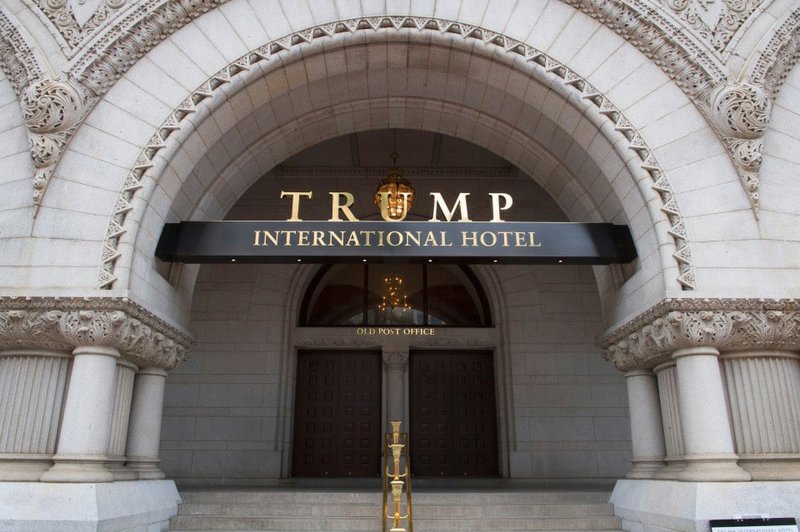WASHINGTON -- A federal judge on Wednesday rejected President Donald Trump's latest effort to stop a lawsuit that alleges Trump is violating the Constitution by continuing to do business with foreign governments.
The ruling, from U.S. District Judge Peter Messitte in Greenbelt, Md., will allow the plaintiffs -- the attorneys general of Maryland and the District of Columbia -- to proceed with their case, which says Trump has violated little-used anti-corruption clauses in the Constitution known as the emoluments clauses.
This ruling appeared to mark the first time a federal judge had interpreted those Constitutional provisions and applied their restrictions to a sitting president.
If the ruling stands, it could bring unprecedented scrutiny onto Trump's businesses, which have sought to keep their transactions with foreign states private, even as their owner sits in the Oval Office.
Messitte's 52-page opinion said that, in the modern context, the Constitution's ban on "emoluments" could apply to Trump -- that it could cover any business transactions with foreign governments where Trump derived a "profit, gain or advantage."
"This includes profits from private transactions, even those involving services given at fair market value," Messitte wrote.
In the past year, the Trump Organization has hosted several large events paid for by foreign governments and reported about $150,000 in what it called "foreign profits" last year.
"In sum, Plaintiffs have plausibly alleged that the President has been receiving or is potentially able to receive 'emoluments' ... in violation of the Constitution," Messitte wrote.
Trump still owns his company, though he says he has stepped back from day-to-day control.
The Trump Organization and the Justice Department had both urged Messitte to dismiss the case, arguing the Founding Fathers had written this clause to stop officials from taking bribes -- but not to stop them from doing business.
The company did not respond to requests for comment. The Justice Department released a short statement saying it was reviewing the decision: "We continue to maintain that this case should be dismissed."
They could now seek to appeal the ruling.
The plaintiffs now want to interview Trump Organization employees and search company records to determine which foreign countries have spent money at Trump's hotel in downtown Washington and how much they spent. They may also seek to review Trump's tax returns, which -- unlike other recent presidents -- he has not made public.
"We are one step closer to stopping President Trump from violating the Constitution's original anti-corruption provisions," said District of Columbia Attorney General Karl Racine, a Democrat, who brought this case along with Maryland Attorney General Brian Frosh, also a Democrat.
Frosh said his staff was already preparing to seek financial documents related to the president's Washington hotel, which is located in a federally owned building, the Old Post Office. Before he became president, Trump won a federal contract to operate the hotel in the historic building.
Frosh suggested that, eventually, the added scrutiny could cause Trump to divest himself of the hotel itself.
"I think the decision bodes ill for his ownership of the Old Post Office hotel," Frosh said.
The lawsuit, filed last year, is one of a spate of legal challenges that have sought to pry into Trump's past business and legal dealings. Two other lawsuits -- one filed by Democratic members of Congress, another by a Washington wine bar that believes it lost business to Trump -- have alleged he is violating the emoluments clause.
Trump has also been sued for defamation by Stormy Daniels, an adult-film star who alleges she had an affair with the future president, and Summer Zervos, a former contestant on The Apprentice.
In addition, the New York attorney general has sued Trump and his oldest children, alleging there was "persistently illegal conduct" at the Donald J. Trump Foundation, a charity they led. Separately, New York state's tax-collecting authority is also investigating that charity to determine whether criminal laws were broken, state officials have said.
A Section on 07/26/2018
